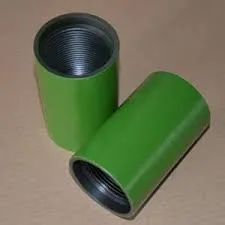- Afrikaans
- Albanian
- Amharic
- Arabic
- Armenian
- Azerbaijani
- Basque
- Belarusian
- Bengali
- Bosnian
- Bulgarian
- Catalan
- Cebuano
- Corsican
- Croatian
- Czech
- Danish
- Dutch
- English
- Esperanto
- Estonian
- Finnish
- French
- Frisian
- Galician
- Georgian
- German
- Greek
- Gujarati
- Haitian Creole
- hausa
- hawaiian
- Hebrew
- Hindi
- Miao
- Hungarian
- Icelandic
- igbo
- Indonesian
- irish
- Italian
- Japanese
- Javanese
- Kannada
- kazakh
- Khmer
- Rwandese
- Korean
- Kurdish
- Kyrgyz
- Lao
- Latin
- Latvian
- Lithuanian
- Luxembourgish
- Macedonian
- Malgashi
- Malay
- Malayalam
- Maltese
- Maori
- Marathi
- Mongolian
- Myanmar
- Nepali
- Norwegian
- Norwegian
- Occitan
- Pashto
- Persian
- Polish
- Portuguese
- Punjabi
- Romanian
- Russian
- Samoan
- Scottish Gaelic
- Serbian
- Sesotho
- Shona
- Sindhi
- Sinhala
- Slovak
- Slovenian
- Somali
- Spanish
- Sundanese
- Swahili
- Swedish
- Tagalog
- Tajik
- Tamil
- Tatar
- Telugu
- Thai
- Turkish
- Turkmen
- Ukrainian
- Urdu
- Uighur
- Uzbek
- Vietnamese
- Welsh
- Bantu
- Yiddish
- Yoruba
- Zulu
stainless pipe coupling
Understanding Stainless Steel Pipe Couplings
Stainless steel pipe couplings are essential components in piping systems, particularly in industries that require reliable, corrosion-resistant materials to handle various types of fluids and gases. These couplings play a crucial role in connecting two lengths of pipe, ensuring a secure and leak-free connection that stands up to pressure and temperature fluctuations.
What are Stainless Steel Pipe Couplings?
Stainless steel pipe couplings are fittings designed to join two pieces of pipe together. They can be categorized into different types based on their specific functions and designs, including threaded, slip-on, and weld-on couplings. The choice of coupling depends on the application, the type of pipes being joined, and the environmental conditions.
Types of Stainless Steel Used
The most commonly used stainless steel grades for pipe couplings are 304 and 316. Grade 304 stainless steel is known for its excellent corrosion resistance and is suitable for general applications. Meanwhile, 316 stainless steel offers enhanced resistance to corrosion, especially against chlorides, making it an ideal choice for maritime and chemical processing applications.
Applications of Stainless Steel Pipe Couplings
Stainless steel pipe couplings are widely used in various sectors, including construction, chemical processing, oil and gas, and water treatment. Their durability makes them ideal for harsh environments where exposure to moisture and extreme temperatures is common. Additionally, the non-reactive nature of stainless steel means that these couplings do not contaminate the substances they convey, which is vital in food processing and pharmaceuticals.
stainless pipe coupling

Benefits of Using Stainless Steel Pipe Couplings
1. Corrosion Resistance One of the most significant advantages of stainless steel is its ability to resist corrosion. This property extends the lifespan of the piping system and reduces maintenance costs over time.
2. Strength and Durability Stainless steel couplings can withstand high pressures and temperatures, making them suitable for a wide range of applications, from residential plumbing to industrial processes.
3. Versatility These couplings can be used with various types of pipes, including those made from PVC, copper, and other metals, allowing for more extensive application possibilities.
4. Easy Installation Many stainless steel couplings are designed for easy installation, often requiring minimal tools. This efficiency can save time and labor costs during setup.
Conclusion
In summary, stainless steel pipe couplings are vital components in modern piping systems, offering unparalleled durability, corrosion resistance, and versatility. Their ability to maintain integrity under challenging conditions makes them ideal for a variety of industries. As technology advances and industries demand more reliable piping solutions, the importance of stainless steel couplings will continue to grow, ensuring efficient and safe fluid transport across numerous applications. With their numerous benefits and applications, investing in high-quality stainless steel pipe couplings is crucial for any project requiring reliable piping systems.
-
Tubing Pup Joints: Essential Components for Oil and Gas OperationsNewsJul.10,2025
-
Pup Joints: Essential Components for Reliable Drilling OperationsNewsJul.10,2025
-
Pipe Couplings: Connecting Your World EfficientlyNewsJul.10,2025
-
Mastering Oilfield Operations with Quality Tubing and CasingNewsJul.10,2025
-
High-Quality Casing Couplings for Every NeedNewsJul.10,2025
-
Boost Your Drilling Efficiency with Premium Crossover Tools & Seating NipplesNewsJul.10,2025







